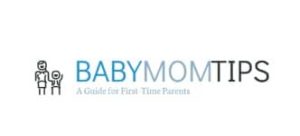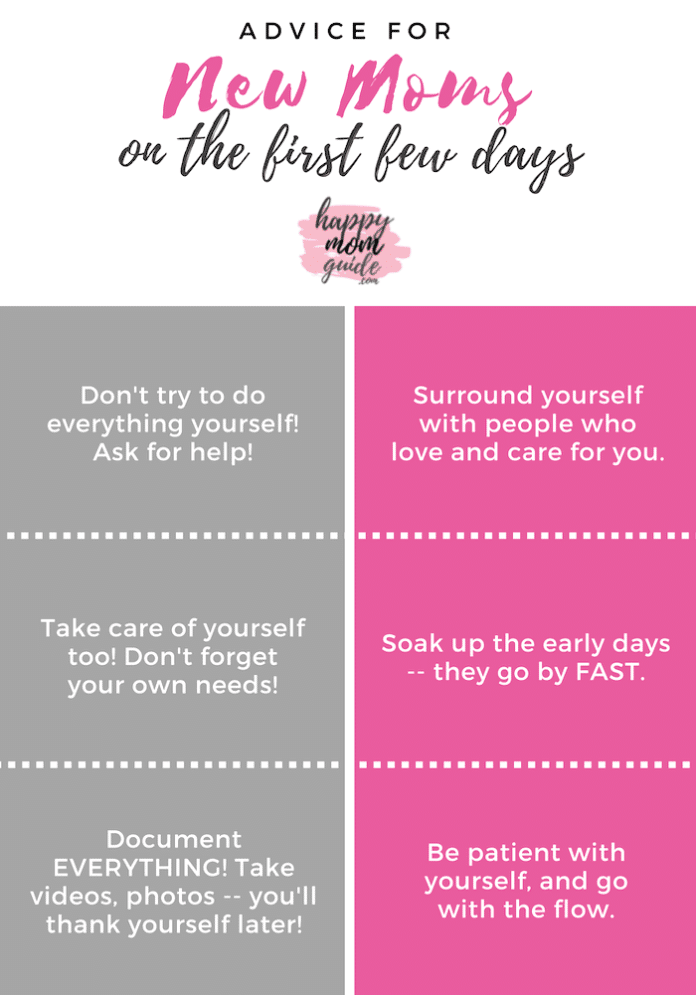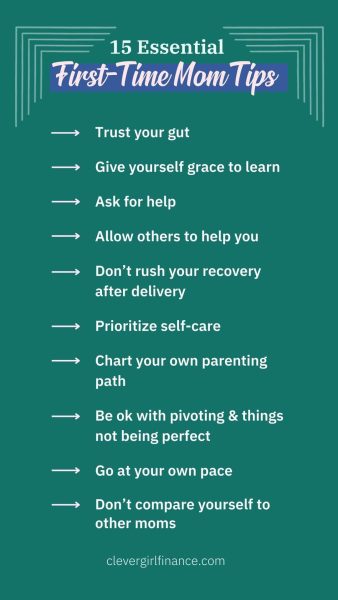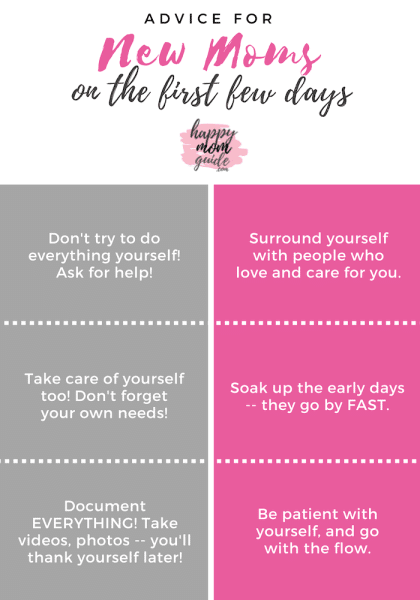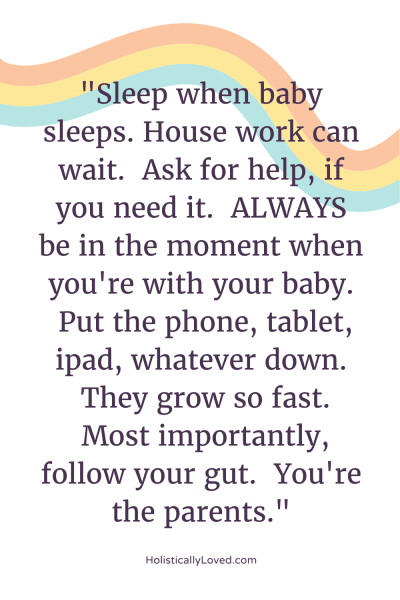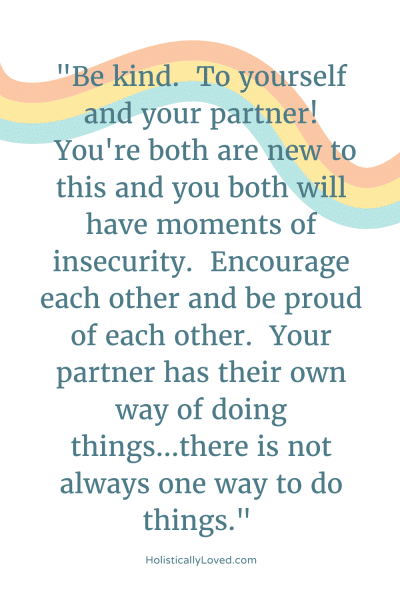Congratulations on your journey into motherhood! As a first-time mom, you may feel excited, nervous, and overwhelmed.
But fear not, dear friend, for this article is here to provide helpful advice and guidance.
From self-care tips and baby essentials to navigating the challenges of breastfeeding and sleep deprivation, we’ve got you covered. Get ready to embrace this incredible chapter of your life confidently and efficiently.
Review contents
Preparing for the Arrival of the Baby
Create a Nursery
Creating a nursery is an exciting and essential part of preparing for your baby’s arrival. Start by selecting a theme or color scheme that you love, and that creates a calm and soothing environment for your little one. Consider investing in essential items such as a crib, changing table, and a comfortable chair for feeding and snuggling. Adding touches like soft bedding, blackout curtains, and a nightlight can create a cozy space for your baby to sleep and play.
Stock up on Essential Items
Before your baby arrives, stocking up on essential items such as diapers, wipes, baby clothes, and feeding supplies is a good idea. Ensure you have enough of these items to last for the first few weeks, as it can be challenging to run errands with a newborn. Creating a well-stocked diaper changing station and organizing baby clothes by size can help you stay organized and ensure you have everything you need when your little one arrives.
Learn About Infant CPR and Basic First Aid
Being prepared for emergencies is crucial when you become a parent. Take the time to learn about infant CPR and basic first aid techniques. Many hospitals and community centers offer classes specifically for parents-to-be. These courses will teach you how to respond in case of choking, perform CPR, and manage common injuries. This knowledge can give you peace of mind and equip you with the skills necessary to protect your baby’s health and well-being.
Establish a Support System
Parenthood can be overwhelming at times, especially for first-time moms. Building a support system is essential to guide you through this beautiful yet challenging journey. Reach out to friends, family, and other parents in your community who can provide emotional support and valuable advice. Consider joining parenting support groups or online communities where you can connect with other moms who are going through the same experiences. A support system can make a difference when you need someone to lean on or share your joys and concerns with.
Taking Care of Yourself
Rest and Sleep as Much as Possible
As a new mom, it’s easy to overlook your needs when focused on caring for your baby. However, getting enough rest and sleep is essential for your overall well-being. Take advantage of moments when your baby is napping or sleeping to prioritize your rest. If possible, ask your partner or a trusted family member to help with caregiving tasks so you can take short naps or catch up on your sleep. Remember, a well-rested mom is better equipped to handle the demands of motherhood.
Eat Nutritious Meals
Proper nutrition is crucial during the postpartum period, as your body needs to recover from childbirth and sustain you while breastfeeding. Aim to eat a balanced diet that includes a variety of fruits, vegetables, lean proteins, whole grains, and healthy fats. Try to plan and prepare meals in advance to save time and ensure that you have nutritious options readily available. Consider contacting a registered dietitian specializing in postpartum nutrition to receive personalized guidance on meeting your specific dietary needs.
Stay Hydrated
Staying hydrated is essential for both you and your baby. Breastfeeding mothers especially need to drink plenty of fluids to maintain a healthy milk supply. Keep a water bottle nearby and try to sip on water throughout the day. You can also include hydrating foods like watermelon, cucumber, and soups. Remember, if you feel thirsty, it’s a sign that you need to increase your fluid intake. Staying hydrated gives you more energy and supports your body’s functions.
Ask for Help
One of the most valuable advice for first-time moms is to ask for help when needed. There’s no shame in seeking assistance; accepting support is not a sign of weakness. Whether asking your partner to take over baby duties for a couple of hours or reaching out to a family member or friend for extra help, don’t hesitate to lean on those around you. Remember that you are not alone in this journey; some people want to support you.
Feeding Your Baby
Educate Yourself about Breastfeeding and Formula Feeding
Deciding how to feed your baby is a personal choice. Educating yourself about breastfeeding and formula feeding can help you make an informed decision that works best for you and your baby. Attend prenatal classes or consult a lactation consultant to learn about the benefits and techniques of breastfeeding. If you choose to formula-feed, familiarize yourself with the different types of formula and how to prepare them safely. Remember, whatever feeding method you choose, it’s essential to prioritize your and your baby’s health and happiness.
Practice Skin-to-Skin Contact
Skin-to-skin contact, known as kangaroo care, is a beautiful way to bond with your baby and provide them comfort and warmth. It involves holding your baby, dressed only in diapers, against your bare chest. Skin-to-skin contact has numerous benefits, including regulating your baby’s body temperature, promoting breastfeeding, and reducing stress for you and your little one. Take every opportunity to snuggle your baby skin-to-skin, whether during feeding or spending quiet moments together.
Seek Professional Lactation Support
Breastfeeding can be a wonderful experience but may also come with challenges. Seeking professional lactation support can help ensure a successful breastfeeding journey. A lactation consultant can guide latching techniques, address any breastfeeding concerns, and offer support if you encounter difficulties such as low milk supply or sore nipples. Don’t hesitate to contact a lactation professional if you need assistance – they are there to help you and your baby thrive.
Introduce Solid Foods at the Right Time
As your baby grows, you’ll eventually reach the exciting milestone of introducing solid foods. It’s essential to begin this journey before your baby is developmentally ready, usually around six months.
Consult with your pediatrician for guidance on when and how to introduce different types of foods, and pay attention to any signs of readiness. Remember to introduce one new food at a time, waiting a few days before introducing another, to monitor for any potential allergies or intolerances. This is an exciting phase for you and your little one, so enjoy exploring new tastes and textures together.
Bonding with Your Baby
Spend Quality Time with Your Baby
Bonding with your baby is an ongoing process that strengthens the connection between you and your little one. Make it a priority to spend quality time together, engaging in activities that promote interaction and closeness.
Set aside regular times during the day for one-on-one bonding, such as bath time, playtime, or feeding. Immersing yourself in these moments will create a secure attachment with your baby and foster their social and emotional development.
Practice Infant Massage
Infant massage is a beautiful way to bond with your baby while providing numerous benefits for their well-being. Take the time to learn gentle massage techniques to soothe your baby, promote relaxation, and aid digestion.
Many resources are available, including books, videos, and classes that can guide you in mastering these techniques. By incorporating infant massage into your routine, you’ll not only enhance your bond with your baby but also support their physical and emotional growth.
Read to Your Baby
Reading to your baby is a simple yet effective way to foster their language development and create a love for books from an early age. Choose age-appropriate books with colorful illustrations and engaging stories or rhymes.
Set aside a quiet, comfortable space where you and your baby can cuddle together during storytime. Even though your newborn may not understand the words, they will benefit from hearing your voice, observing the pictures, and witnessing your enthusiasm for reading.
Play and Engage in Sensory Activities
Playtime is crucial to your baby’s development, helping them explore the world around them and engage their senses. Create a safe and stimulating play environment with age-appropriate toys and sensory activities.
Sing songs, play peek-a-boo, or use soft and textured toys to encourage sensory exploration. Remember to follow your baby’s cues and provide them with plenty of opportunities for independent play. You’ll nurture their cognitive, physical, and social development by actively engaging with your baby and providing them with various play experiences.
Establishing a Routine
Create a Flexible Schedule
Establishing a routine can bring a sense of structure and predictability to your days as a new mom. However, it’s essential to approach it flexibly, as babies have unique rhythms and needs. Create a flexible schedule for feeding, sleeping, and playtime that suits your baby’s cues while providing a basic framework for your day. By establishing consistency in your routines, you’ll benefit from a sense of order and familiarity.
Establish a Bedtime Routine
A bedtime routine can help signal your baby that it’s time to wind down and prepare for sleep. Choose soothing activities that promote relaxation, such as a warm bath, gentle massage, or reading a bedtime story. Keep the environment calm and dimly lit to encourage a restful atmosphere. Following the same daily routine will help your baby associate these cues with sleep and establish healthy sleep patterns over time. Newborns usually wake frequently at night, so be patient and understanding as your baby adjusts to their sleep routine.
Set Small Goals for Each Day
As a new mom, it’s easy to feel overwhelmed by the never-ending to-do list. Setting small, achievable daily goals can help you feel more in control and accomplished. Prioritize essential tasks, but also remember to include self-care activities and quality time with your baby. Breaking down more significant tasks into smaller steps can make them more manageable. Celebrate even the most minor accomplishments, contributing to your well-being and happiness.
Be Flexible and Adapt
While routines are beneficial, remaining flexible and adaptable as a new mom is essential. Babies are constantly growing and changing, and their needs can shift daily. Be open to adjusting your routines as necessary to accommodate your baby’s evolving needs. Embrace the unpredictable nature of motherhood and allow yourself the freedom to go with the flow. By remaining flexible, you’ll be better prepared to handle unexpected changes and enjoy the beautiful moments that come your way.
Nurturing Your Mental Health
Talk to Other Moms for Support
Connecting with other moms who are going through similar experiences can provide immense support and reassurance. Reach out to friends and family, or join local mom groups where you can share your joys, concerns, and challenges. Talking openly about your experiences can help normalize the ups and downs of motherhood and provide valuable insights and advice. Knowing you’re not alone in your journey can be a tremendous source of comfort.
Attend Postpartum Support Groups
Postpartum support groups offer new moms a safe and nurturing environment to share their experiences, emotions, and challenges. These groups are typically led by trained professionals who can offer guidance and support. Regular support group sessions can help you navigate the emotional rollercoaster often accompanying the postpartum period. You’ll have the opportunity to connect with other moms, learn coping strategies, and gain a deeper understanding of your emotions and needs.
Take Breaks Whenever Possible
As a new mom, taking breaks and carving out time for yourself is essential for your mental well-being. When your baby is napping or being cared for by your partner or a family member, allow yourself some guilt-free time to relax, pursue hobbies, or engage in activities that bring you joy. Taking breaks allows you to recharge, helps prevent burnout, and promotes a positive mindset. Remember, self-care is not selfish – it’s vital to being the best mom you can be.
Seek Professional Help if Needed
If you’re experiencing persistent sadness, anxiety, or overwhelm, seeking professional help is crucial. Postpartum depression and anxiety are common, and there is no shame in reaching out for support. Consult with your healthcare provider or a mental health professional specializing in postpartum mental health. They can offer guidance, therapeutic interventions, and medication if necessary. Remember, your mental health is just as important as your physical health.
Taking Care of Your Physical Well-being
Exercise Regularly
Engaging in regular exercise can benefit both your physical and mental well-being. Consult with your healthcare provider to determine when it’s safe to resume physical activity after childbirth. Start with gentle exercises such as walking or postnatal yoga, gradually increasing intensity as your body heals. Physical activity can boost your energy levels, improve your mood, and help you regain strength and stamina. Remember to listen to your body and choose activities that you enjoy.
Do Kegel Exercises to Strengthen Pelvic Floor
Pregnancy and childbirth can weaken the pelvic floor muscles, leading to issues such as urinary incontinence. Performing Kegel exercises can help strengthen these muscles and prevent or alleviate these concerns. To do Kegel exercises, contract the muscles you would use to stop the urine flow and hold for a few seconds before releasing. Repeat this exercise several times a day to strengthen your pelvic floor. Consult a healthcare provider or pelvic floor specialist if you know the proper techniques.
Attend Regular Check-ups
Regular check-ups with your healthcare provider are essential for monitoring your postpartum recovery and addressing concerns. These appointments allow your provider to assess your physical well-being, screen for common postpartum issues, and provide necessary guidance and support. Make it a priority to attend your follow-up visits, even if you’re feeling well, as they ensure that you receive appropriate care and intervention if needed.
Practice Self-Care
Practicing self-care is crucial for maintaining your physical well-being as a new mom. Set aside time daily to engage in activities that nurture your body and mind. This could include taking a relaxing bath, practicing mindfulness or meditation, enjoying a hobby, or indulging in pampering with a face mask or massage. Taking care of yourself allows you to recharge and approach motherhood with renewed energy and fulfillment.
Managing Relationships
Communicate Openly with Your Partner
Open and honest communication with your partner is critical to maintaining a healthy relationship during the transition to parenthood. Share your joys, fears, and concerns, and work together to solve everyday challenges.
Set aside dedicated time to connect and focus on your relationship, ensuring that it continues to flourish amidst the demands of parenting. Keeping the lines of communication open helps build a strong foundation of support and unity.
Spend Time Alone with Your Partner
While your baby undoubtedly becomes the center of your world, investing in your relationship as a couple is vital. Make it a priority to spend quality time alone with your partner, even if it’s just for a few minutes each day.
This could involve having a heartfelt conversation, going on a date night, or simply cuddling on the couch, and nurturing your connection as a couple strengthens your bond and allows you to remember the love that brought you together.
Maintain Connections with Friends and Family
Maintaining connections with friends and family is essential for your mental well-being and the overall support network for your family. Make an effort to stay in touch with your loved ones, whether through phone calls, video chats, or even meeting up for a social outing. Surrounding yourself with supportive friends and family helps alleviate feelings of isolation and provides a robust support system. Reach out to loved ones when you need advice, a listening ear, or help with everyday tasks.
Seek Professional Couples Counseling if Needed
Transitioning to parenthood can sometimes strain even the most vital relationships. If you and your partner face complex challenges, seeking professional couples counseling can be beneficial. A trained therapist can help you navigate communication issues, manage conflicts, and work towards a more fulfilling and harmonious partnership. Remember, seeking outside support is a proactive step towards ensuring your and your relationship’s health and happiness.
Handling Parenting Challenges
Trust Your Instincts
As a first-time mom, you may often seek validation and advice from others. While learning from experienced moms and seeking guidance is valuable, it’s also essential to trust your instincts. You know your baby best and have the innate ability to understand their needs. Listen to your intuition and be confident in the decisions you make for your baby. Remember, you are the expert when it comes to your little one.
Seek Advice from Experienced Moms
Seeking advice from experienced moms can provide valuable insights and tips as you navigate parenting challenges. Reach out to friends or family members who have gone through similar experiences and ask for their guidance. Remember that every child and parenting experience is unique, so be selective with the advice you receive and ultimately trust your judgment. Hearing different perspectives can broaden your knowledge and help you make informed decisions.
Join Parenting Classes or Workshops
Parenting classes and workshops offer a wealth of knowledge and practical skills for first-time moms. Look for classes that focus on topics such as newborn care, infant nutrition, or sleep training. These educational opportunities not only provide you with valuable information but also allow you to connect with other new parents. Learning alongside others going through the same experiences can be an excellent source of support and camaraderie.
Take Each Day as it Comes.
Parenting is a constantly evolving journey, and embracing each day as it comes is essential. There will be good and challenging days, but remember that each is an opportunity for growth and learning. Be patient with yourself and your baby, and permit yourself to make mistakes. Remember that you are doing your best, and your unconditional love and dedication to your baby are the most important aspects of being a mom.
Celebrating Milestones
Capture Memories with Photos
Your baby’s first year is filled with countless precious moments and milestones. Capture these memories by taking plenty of photos. Whether it’s their first smile, first steps, or an everyday moment that fills your heart with joy, photographs are a beautiful way to preserve these special times. Consider creating albums or digital photo books showcasing your baby’s growth and milestones. These precious memories will bring you endless joy as you reminisce and share them with your child as they grow.
Create Keepsakes or Baby Books
In addition to photographs, consider creating keepsakes or baby books to document your baby’s journey. Baby memory books provide a tangible way to record important milestones and memories. Include details such as your baby’s first words, funny anecdotes, and significant events. You can also create keepsakes such as hand and footprints or memorabilia from essential occasions. These mementos are cherished reminders of this precious time in your baby’s life.
Celebrate Little Achievements
As your baby grows, they will reach numerous big and small milestones. Take the time to celebrate these little achievements and accomplishments. Whether rolling over, sitting up, or trying new foods, each milestone represents your baby’s development and progress.
Celebrate these milestones with enthusiasm and joy, and share them with your loved ones. These celebrations recognize your baby’s growth and remind you of your beautiful journey together.
Enjoy the Journey
Above all, remember to enjoy the journey of motherhood. Getting caught up in the never-ending tasks and challenges is easy, but don’t forget to appreciate the joy and love of raising a child.
Take moments to savor the little things – the sound of your baby’s laughter, the feeling of their tiny hand in yours, and the warmth of their cuddles. Embrace the magic of being a mom, and let it fill your heart with gratitude and happiness.
This time with your baby is precious, so make the most of every day and treasure your journey together.
Q: What advice do you give first-time moms?
A: Being a new mom can be overwhelming, but here are some pieces of advice for new moms to help you navigate through this life-changing journey:
Q: Is it normal to feel overwhelmed as a new mom?
A: Absolutely! It’s completely normal to feel overwhelmed in the beginning. Remember that every mom goes through this,, and adjusting to the new role takes time.
Q: How can I ask for help as a new mom?
A: Don’t be afraid to ask for help. It takes a village to raise a child, so contact family members and friends, or even hire a babysitter or nanny if needed.
Q: What should I expect during the postpartum period?
A: The postpartum period can be challenging both physically and emotionally. Don’t hesitate to seek support from your healthcare provider, as they can provide guidance and resources.
Q: How can I cope with the lack of sleep as a new mom?
A: Sleep deprivation is common for new moms. Try to nap when your baby naps, accept help when offered, and prioritize self-care to help combat fatigue.
Q: Are there any tips for soothing a crying baby?
A: Babies cry for various reasons, sometimes for no apparent reason. Some soothing techniques include swaddling, rocking, offering a pacifier, or using white noise.
Q: What is the best advice for new moms?
A: The best advice for new moms is to trust your instincts and do what feels suitable for you and your baby. Everyone’s parenting journey is different, so embrace your uniqueness .
Q: Can you provide some parenting tips for first-time moms?
A: Absolutely! Here are a few tips for new moms: establish a routine, practice self-care, trust your instincts, don’t compare yourself to others, and cherish the precious moments with your little one.
Q: What are some common challenges new parents face?
A: Some common challenges new parents face include sleep deprivation, adjusting to a new routine, breastfeeding difficulties, and dealing with the emotional rollercoaster of having a new baby.
Q: How can I manage the stress of being a new mom?
A: Managing stress as a new mom is crucial for your well-being. Make sure to prioritize self-care, practice relaxation techniques, communicate your feelings with loved ones, and seek support when needed.
